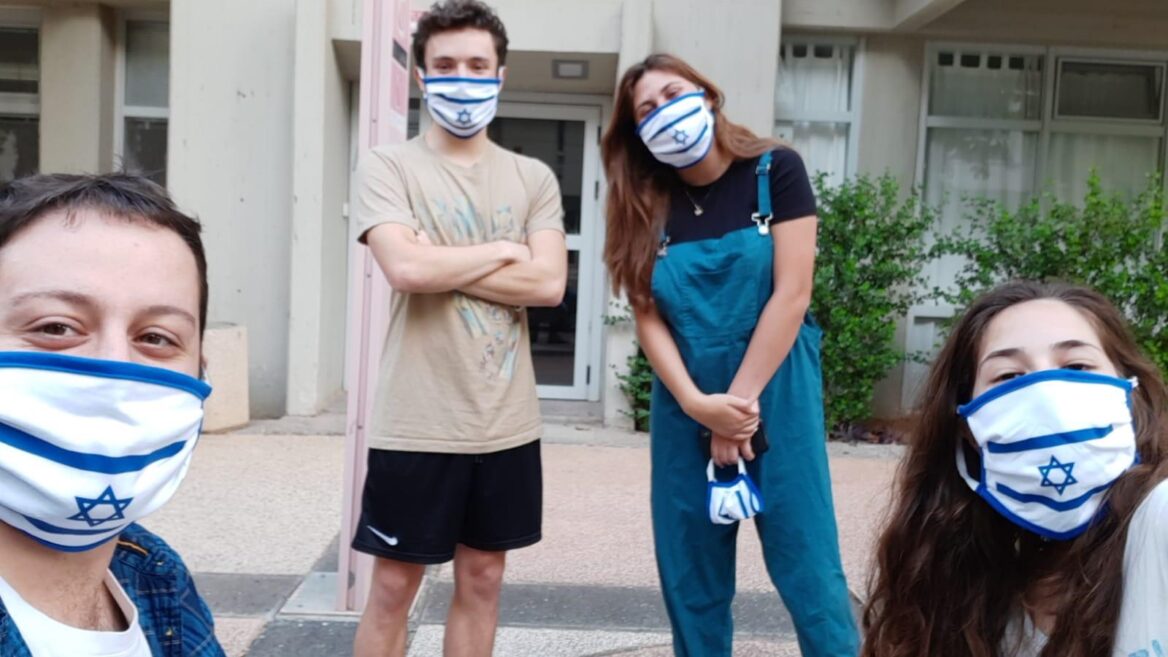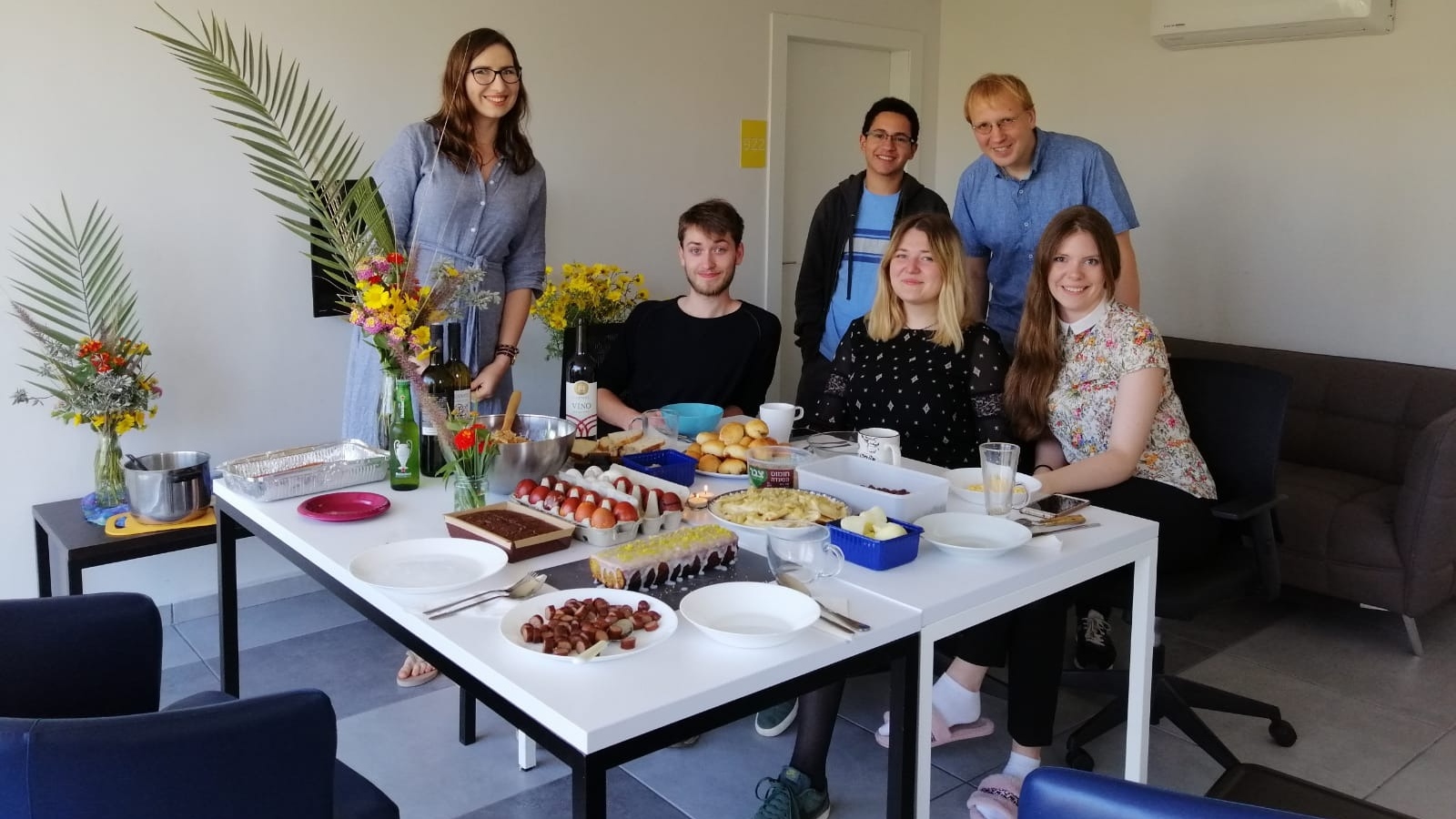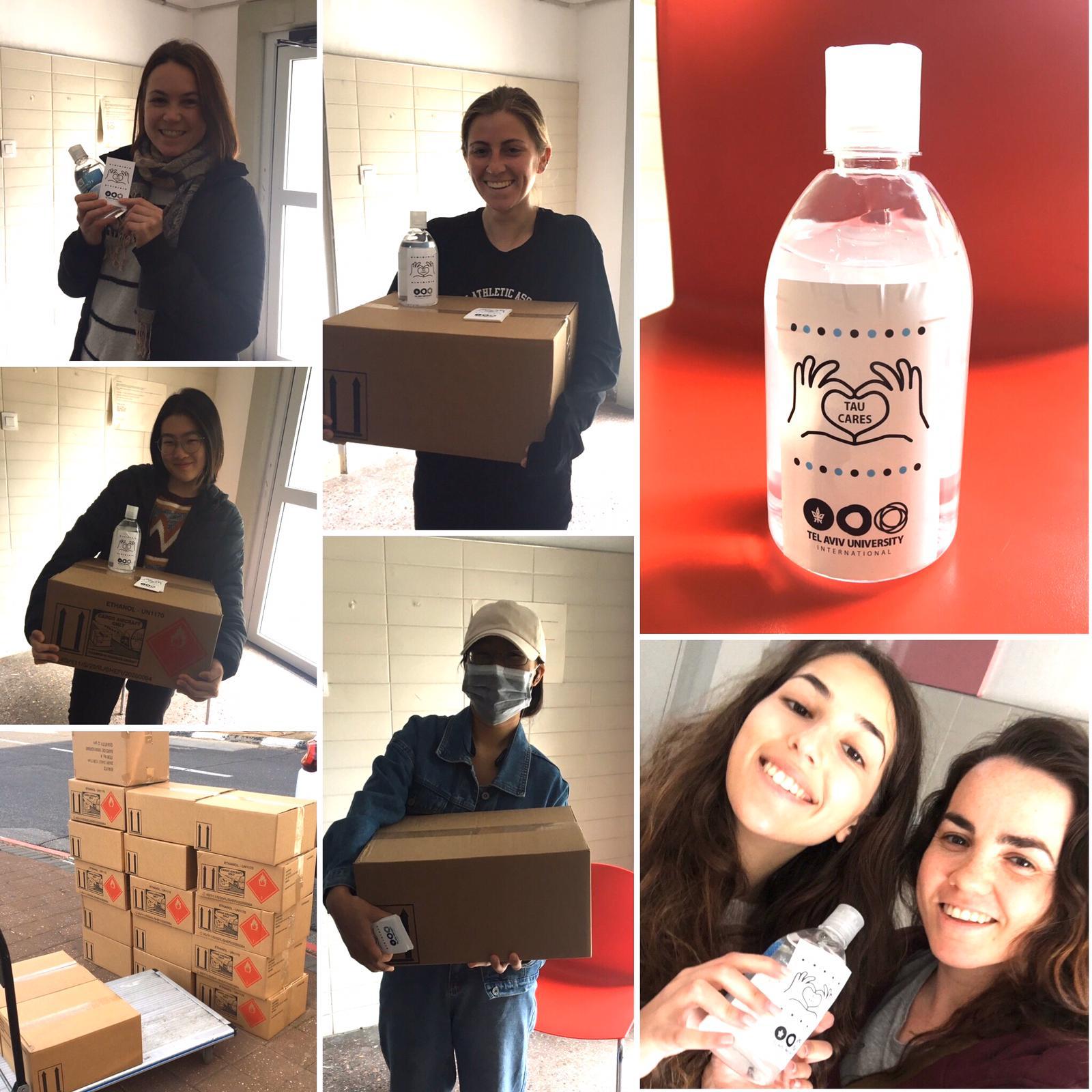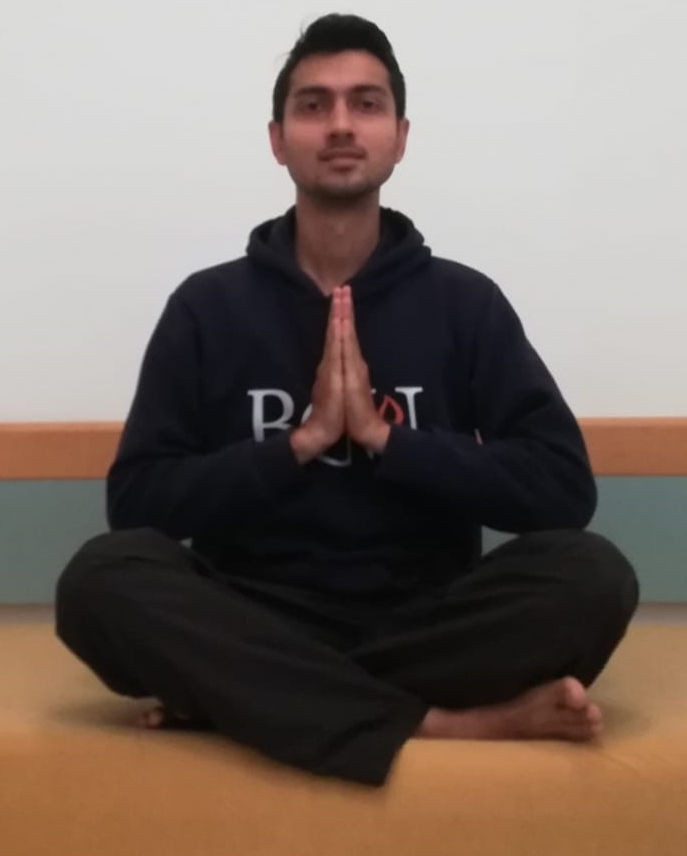
During corona, overseas students prefer to be in Israel
With colleges worldwide worried about falling admissions due to Covid-19, Israeli universities have seen a heartening uptick in international interest.
by Abigail Klein LeichmanJoanna Pluta of Poznan, Poland, arrived at Bar-Ilan University in Ramat Gan on March 8 — her 24th birthday — for a semester of graduate studies in chemical technology. She was excited to experience a different landscape and culture.
Instead, Pluta and thousands of other international students at Israel’s nine public universities spent spring semester on lockdown, courtesy of the coronavirus pandemic.
“After just one class, everything went to Zoom. I said, ‘Oh no, I can’t go to a lab!’ Everything is formal lectures online,” says the future scientist.
Her first reaction was to try to go home. But when she and other Polish students contacted their embassy in Israel, they were told they’d have to leave immediately as the borders were closing.
“We didn’t want to do that. So we calmed down and saw it could be very nice to stay here on our beautiful campus together,” she says.

The staff of Bar-Ilan’s International School kept in constant touch with the overseas students.
“I was shocked that they gave us free food before Easter,” Pluta tells ISRAEL21c. “It was really helpful. We managed an Easter celebration with friends in the International School from Latvia, Lithuania, Germany and Poland, and even one from New York. We each made loads of dishes from our countries. It was amazing.”
Now, with restrictions relaxing in Israel, Pluta can finally get to the lab and do some weekend sightseeing.
“I will always remember diving on the coral reef in Eilat and floating on the Dead Sea,” she says. “That was my dream.”

Someone to talk to
As of October 2019, 11,853 international students were studying in Israel, primarily from the US, Canada, Germany, France, China, India and South Korea.
Though many North American and semester-abroad students were recalled by their home universities, a significant number decided to stay – particularly those among the 5,000 enrolled in full degree programs.
Hebrew University of Jerusalem, for instance, reported that 80% of current students in the Rothberg International School stayed in Israel during the outbreak. At Ben-Gurion University in Beersheva, 700 overseas students chose to wait the virus out in Israel.
At Tel Aviv University, also about 700 — of roughly 1,300 international students — remained on campus during the corona lockdown, reports Maureen Meyer Adiri, director of Tel Aviv University International.

“We provided them with ongoing information to make sure they were aware of what was going on and had someone to talk to, plus academic, psychological and medical support when needed,” Adiri tells ISRAEL21c.
Her staff alerted the international students to volunteering opportunities and organized fun webinars and giveaways.
Marissa Gross Yarm, head of international student affairs at the Council for Higher Education in Israel, says the fact that most full-degree students stayed “is really amazing but put a lot of responsibility on the universities to take care of them during the lockdown. They did an excellent job making sure all the students’ needs were met. The academic portion online went well too.”
Increasing international demand
Institutes of higher education across the world are concerned for the future. According to University World News, the pandemic could cause a 15% to 25% decline in enrollment. Some colleges and universities will shut down or merge with others.
While international summer programs and student exchange programs in the fall are off the agenda at Israel’s universities, many of the institutions are reporting a rise in overseas demand.
At Bar-Ilan’s International School there has been a 50% increase in enrollment of overseas students, many from the United States and France. And registration for some TAU international degree programs – including a master’s in public health, emergency and disaster management — increased more than 50 percent over last year.
“Throughout the corona crisis, our international call center has lit up with numerous inquiries from potential students,” said Oron Shagrir, vice president for international affairs at the Hebrew University of Jerusalem.
In response to this growing number of overseas queries regarding graduate degree options, HU held its first-ever online Open House for International Students on May 24.
“The discourse here in Israel is much more positive,” Yarm confirms to ISRAEL21c. “Israelis are good at crisis management and therefore understood how to put support systems in place. People will see Israel as a good place to study because we were able to tackle the pandemic and support our international students.”
“People have a craving to travel,” says Prof. Limor Aharonson-Daniel, vice president for global engagement at Ben-Gurion University. “There is a perception that Israel has been handling the pandemic well, that the curve stayed flatter than in other countries. It is possible that we’ll have a second wave, or the skies won’t open completely. For now, we’re behaving as if the fall semester will be normal.”
An October start
Also appealing is that because Israeli higher education always starts in October after the Jewish holidays, a regular fall semester is planned. In contrast, many college campuses in other countries won’t reopen until spring.
“With universities delaying or suspending the start of the upcoming 2020/2021 academic year, many students are beginning to consider pursuing their degrees overseas, especially in countries [like Israel] that have fared better during the coronavirus pandemic,” said Shagrir.
“We are working with different government ministries about how to proceed for the fall semester and bring back international students who were stuck abroad when borders closed during semester break,” says Yarm.
“Hopefully, the [coronavirus] situation will continue to remain stable or even get better. For now, the universities are preparing to welcome international students and conduct courses.”
Yoga and Kahoot
As founding director of BGU’s Prepared Center for Emergency Response Research, Aharonson-Daniel was responsible for establishing a hotline and a Covid-19 research taskforce.
In her global engagement capacity, she stayed in contact with the international students on campus, updating them on the government’s frequently changing coronavirus restrictions.
“We were very concerned about their social life and wanted them to have a good experience here,” Aharonson-Daniel tells ISRAEL21c. “After all, they could have studied by Zoom from home.”
Her staff organized online movie and discussion nights, Kahoot games, cooking demos and virtual tours of Israeli sites.
“On Independence Day, our staff boxed up falafel with a little Israeli flag and handed one out to each room, with masks and gloves of course. For students who had to go right into isolation after arriving at the beginning of the semester, we put decorated baskets full of fun stuff at their doors.”

Cornell University PhD student Alap Kshirsagar, 27, came to BGU in October as a visiting researcher in robotics. When the pandemic began spreading, he could have gone back to the New York campus or home to India.
“I thought New York was much worse than Israel, and the numbers in India were slowly picking up, so I chose to stay here. I moved my workstation into my apartment in the international student dorms and continued my research remotely.”
Kshirsagar tells ISRAEL21c that he’s grateful to Aharonson-Daniel’s staff. “They really took care of us and did one-on-one sessions to ask how we were doing.”
He led an online yoga session joined by BGU students from half a dozen countries. “I have been practicing yoga for a long time and it helps me emotionally. I wanted to transfer that to other students. We did some basic breathing practices to relax and to strengthen their respiratory system against the Covid virus.”
Now he’s back in the lab and enjoying weekend trips again before returning to Cornell – whenever travel to New York will be possible.

More about Culture

Used corona gloves become fun characters with a message
By Abigail Klein Leichman
One man’s journey from a kibbutz to Major League Baseball
By Lookout Landing
What Israel can teach the world about beating a pandemic
By Jonathan Frenkel
Celebrate all things Israeli wine, even from afar
By Naama Barak
10 fabulous Israeli white wines to enjoy this Shavuot
By Naama Barak
6 delicious and easy to make dishes to help you celebrate Shavuot
By 21see
Art-inspired vegan recipes for health and healing
By Sarah Winkelman
Still stuck at home? Play these Israeli board games
By Naama Barak
Jerusalem Youth Chorus makes video with ‘Hamilton’ stars
By Abigail Klein Leichman
Will Deni Avdija be Israel’s first NBA star?
By Sports Illustrated
On the precipice of change – a conversation with two futurists
By Nicky Blackburn
What will the world look like after corona?
By Abigail Klein Leichman
Jerusalem Writers Festival goes digital, and it’s awesome
By Naama Barak
Art in corona times: Tel Aviv museum takes works outside
By Naama Barak
8 ways to visit Israel from the comfort of your home
By Jessica Halfin
Experience Ramadan in Jerusalem from the comfort of home
By Naama Barak

11 fun ways to celebrate Israel Independence Day in lockdown
By Naama Barak
Make your own homemade hummus and pita this Independence Day
By ISRAEL21c
Celebrate life this Independence Day with 60 fabulous photos
By Nicky Blackburn